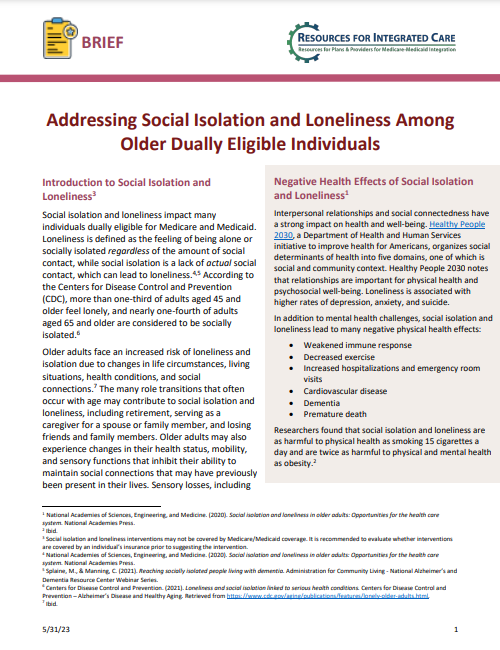Headline
Toolkit offers recommendations and examples for screening and interventions that support social connectivity of older adults.
Context
Social isolation and loneliness have a significant impact on older adults and are exacerbated by evolving life circumstances, like health conditions, retirement, and loss of family and friends. Certain groups of older adults are more likely to experience social isolation and loneliness, including LGBTQ+ individuals, people of color, immigrants, and individuals with intellectual and developmental disabilities. Also, older adults experiencing financial instability or living in rural areas are also at higher risk. This guide offers recommendations to support this population.
About this Tool
This guide provides:
- Recommendations for screening tools and screening processes that can identify those at risk of social isolation and loneliness;
- Descriptions of two interventions (social facilitation and various psychological therapies) that can help decrease social isolation and loneliness for this population; and
- Practical examples of these interventions from health plan programs that support older adults during care transitions.
The guide also includes a list of additional resources.
Takeaways
Providers, health plans, and community-based partners can use this report to implement screening tools and interventions to better support older adults experiencing social isolation and loneliness.

